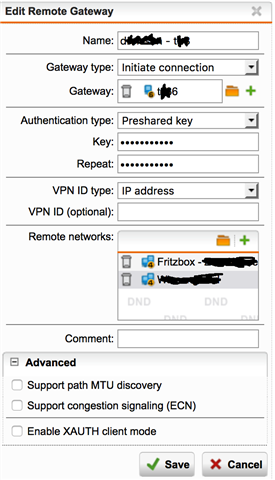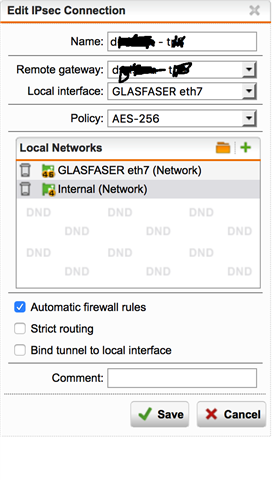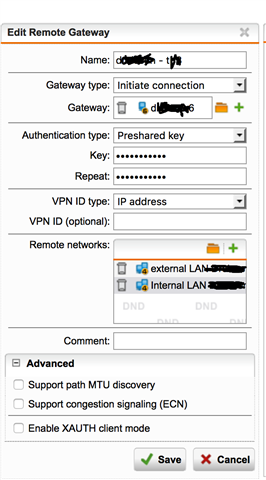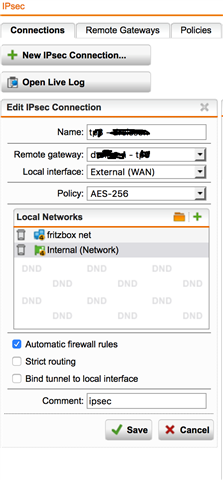Hallo zusammen,
ich habe zwischen zwei Standorten mit einer SG115 und SG135 eine IPSec Verbindung über IPv6 eingerichtet. Ein Anschluß hat 100Mbit/s Down/Up und der andere hat 200Mbit down/up. Ein ping zwischen beiden UTM's dauert ca. 8ms. Das Einbinden von Freigaben und anschließende Kopieren dauert ewig. Es werden nur 4 kB/s angezeigt.
Leider habe ich keine Idee mehr, wo ich ansetzen soll.
Übersicht der IPSec VErbindung in der Site-to-Site Übersicht:
|
|||||||||||||||||||
|
|
|||||||||||||||||||
Danke!
This thread was automatically locked due to age.






